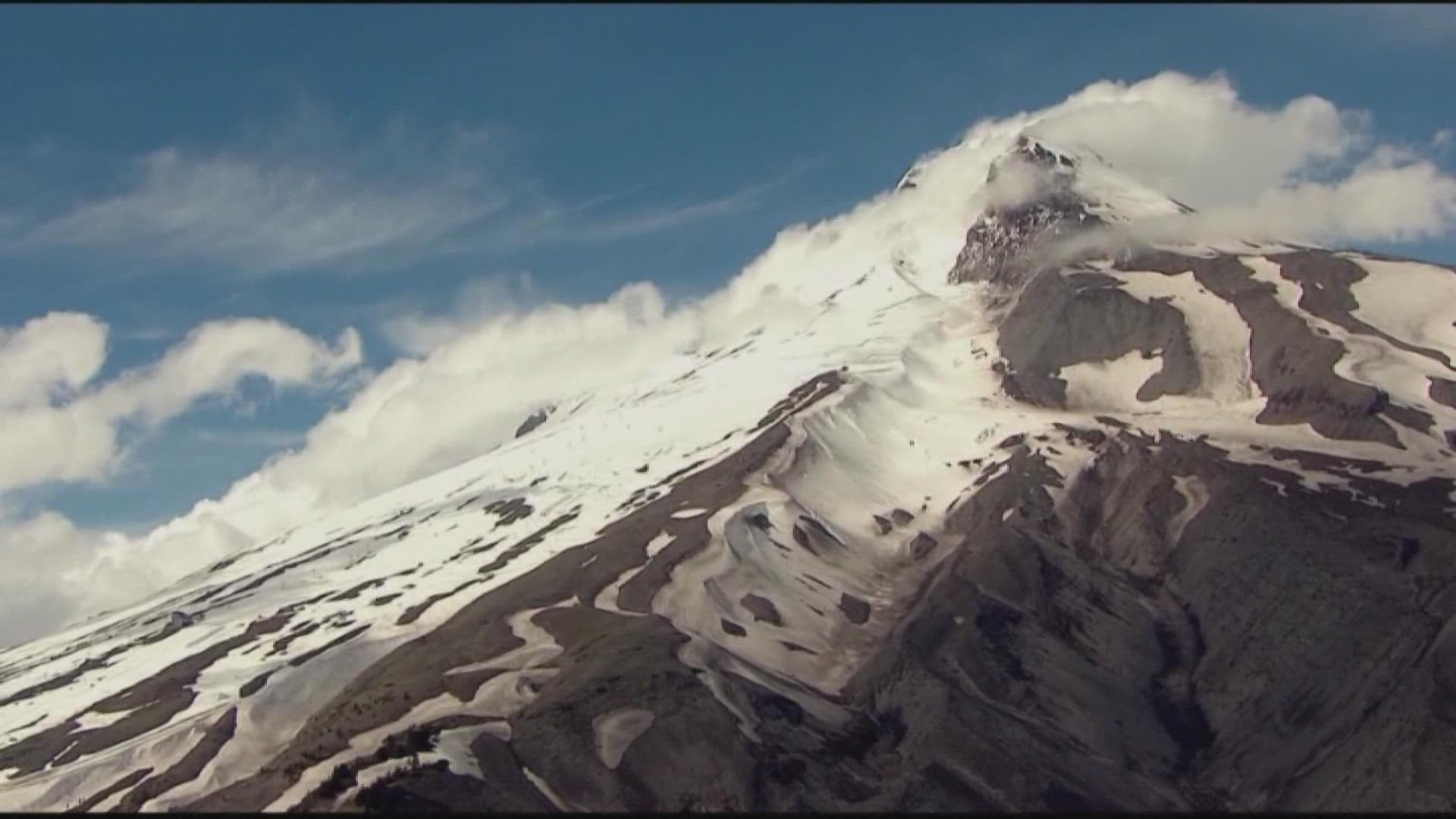PORTLAND, Ore. — Excited for the ski season? Be sure to savor it while you can.
A new study led by researchers at Lawrence Berkeley National Laboratory suggests there might not be enough snow to ski on Mt. Hood in 50 years. In fact, the Cascades might have no snowpack at all by 2070.
"Coastal mountain ranges such as the Cascades may face more amplified losses," said Dr. Alan Rhoades, a researcher who was part of the study.
After analyzing snowpack data and projected temperature rise, he found that peak annual snowpack in the Cascades could decrease by about 25% in the next 30 years.
And by the end of the century?
"We found that low to no snow might occur in the next 35 to 60 years," Rhoades said. "Low to no snow implies that there's going to be dramatic impacts for our water supply."
The snow simply can't compete with rising temperatures.
"It's just the freezing point of water is non-negotiable ... as we continue to warm more and more, we can't have below-freezing conditions be maintained for long periods of time," Rhoades said.
In the decades to come, ski seasons will become increasingly shorter. Resorts will have to rely more on artificial snow, which is energy intensive and costly.
"Then eventually if it gets warm enough, it's just virtually impossible to keep, you know, producing artificial snow to meet to meet skier needs... so yeah, in some regions, at maybe lower elevations, those ski resorts would likely be pretty dramatically impacted."
Rhoades hopes his research will shine the spotlight on snowpack as an impact of climate change is that just as important a sea-level rise, wildfires, and extreme weather events.
His goal is to help identify ways managers might be able to overcome snow loss, find ways to mitigate it, and prepare for a warmer, less snowy future.

